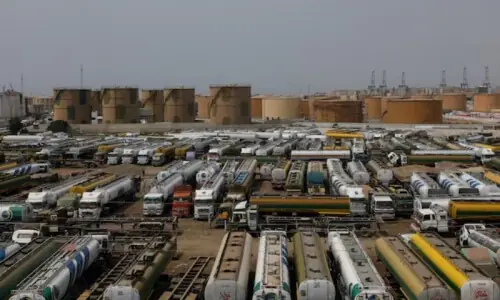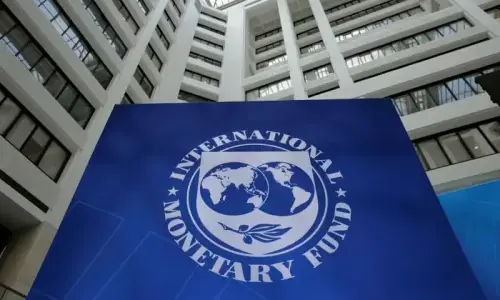
The history of well-established, principled and long-standing partnerships based on cooperation between China and Pakistan dates back to the earliest years when Pakistan was one of the first major countries to recognise the People’s Republic of China.
This ‘time-tested and all-weather’ friendship is built on the strong pillars of bilateral cooperation on socio-economic grounds. Continuing the harmonious legacy of trust and collaboration, China has become the largest trade partner of Pakistan after the Free Trade Agreement was signed in 2006, where both countries have agreed to eliminate tariffs on a number of products.
Similarly, China-Pakistan Economic Corridor (CPEC) is a multi-billion-dollar infrastructure- development project consisting of a network of highways, railways, pipelines, special economic zones, power plants, and multiple other ventures.
A consortium of Chinese investors, including the China Financial Futures Exchange, Shanghai Stock Exchange, and Shenzhen Stock Exchange, have purchased up to 40 per cent stake in the Pakistan Stock Exchange (PSX).
Despite strong ties, Pakistan has been unable to significantly benefit from its relationship with China owing to incompatibilities between the socio-economic structures of the two countries
In spite of these developments, Pakistan has not achieved substantiate success in translating these endeavours into sustainable partnership programmes, which might further bring foreign direct investment (FDI), portfolio investment, transfer of technology, and knowledge exchange schemes between the two nations.
Several multilayered challenges are observed at state-to-state, business-to-business, and people-to-people levels, which have affected the economic cooperation between the two countries.
Regarding the state-to-state structural crisis, infrastructure gaps are of preliminary concern for the economic policymakers of Pakistan. The country needs to become more resourceful in terms of transportation, energy, technical and knowledge expertise, and communication framework.
The colonial nature of Pakistan’s administrative structure and the western orientations of the majority of bureaucrats (with their dual western nationalities and academic degrees from western universities) are also among the significant challenging factors.
On the other hand, Deng Xiaoping’s revolutionary reforms of 1978 completely transformed the nature of Chinese bureaucracy. A famous quote by Deng Xiaoping states that it does not matter if the cat is white or black. As long as it can catch mice, it is a good cat.
Consequently, the Chinese have become result-oriented regardless of the socialist or capitalist nature of their counterpart. Delays in implementing some of the joint projects under CPEC by Pakistan’s administrative and legal institutions annoyed these result-oriented Chinese.
Terrorism in Pakistan, with its serious security implications, is probably the most important issue for both countries. The western border of Pakistan is the most sensitive and rather much more dangerous because of the historic designs of the roots of terrorist organisations in nearby regions. These organisations have proven to be serious threats to Chinese investors, engineers and workers.
On the political front, political parties, through proper communication channels, can facilitate diplomatic relations between the two countries. It can lead to a greater understanding of these nations on subject matters and hence enhance their level of cooperation.
Unfortunately, no one major political party in Pakistan has any formulations of socialist traditions, values and principles. On the contrary, the Chinese Communist Party (CCP), because of its central role in decision-making, is the ultimate socialist platform to deal with.
Historically, Pakistan, as a member of the South Asia Treaty Organisation, has always acted as a frontline state for capitalist powers against communist regimes of Asia. Pakistan also has a long history of military coups and authoritarian regimes, which always suppressed left-leaning political parties and their agendas.
Poverty, inequality, corruption, mismanagement and underdevelopment have also made Pakistan a fertile ground for populist leaders and their movements. These leaders and parties, through popular slogans of being the only solution for all the prevalent issues, manipulate the sentiments of the masses. Through the knowledge of this reality, one can conclude that Pakistan needs to engage China on the political front as this is the only pragmatic solution.
On the business front, China has two developmental platforms in the form of State-Owned Enterprises (SOEs) and the private sector. Former belong to government-controlled organisations, with their national goals and objectives, and which play a key role in a country’s economic growth and social stability.
SOEs have a stronghold in the sectors like energy, transportation, and telecommunications but have yet to make considerable progress in digital technology and e-commerce.
On the other hand, Pakistan’s IT industry and academia are facing a significant crisis in terms of lacking the necessary equipment and talented manpower. Consequently, Pakistan lacks in terms of generating a digital economy.
China’s private sector comprises companies which are particularly entrenched in electronics, electricity, textile, tech and E-commerce. These companies include Alibaba, Tencent, and Huawei etc.
Comparatively, Pakistan’s private sector can not offer a valued contribution through product and process innovation. Contrastively, India has attracted a considerable amount of FDI from China over time.
Last but not least, it is important to discuss the issues of People-people contact. In terms of establishing such contact between the people of the two countries, language difference acts as a major barrier.
Though English can act as a mediating mode of communication, meaningful communication of ideas for developing mutual understanding is still an issue.
Both China and Pakistan have diverse religious ethnicities with different beliefs and spiritual paradigms. Pakistani society needs to be inculcated with pluralistic visions about the values, ideas, and religious perspectives of other nations. The lack of such pluralistic attitudes makes it more difficult for Chinese nationals to feel safe in Pakistan. Thus, it also affects their willingness to visit and establish relationships with the local people.
Because of the direct impact of these hurdles, Pakistan has failed to benefit much from its neighbour, despite its relationsip with the $17.73 trillion economy.
The writer is an assistant professor (PhD Financial Economics) at the National University of Modern Languages, Islamabad. He can be reached at abwahid.fms@gmail.com
Published in Dawn, The Business and Finance Weekly, April 25th, 2023


































